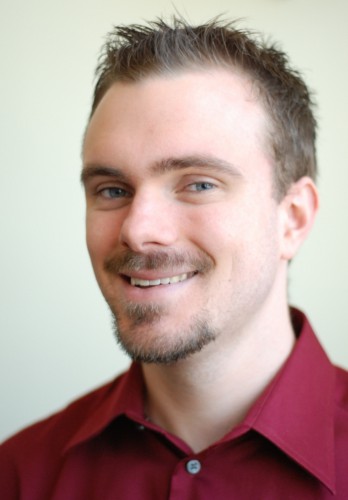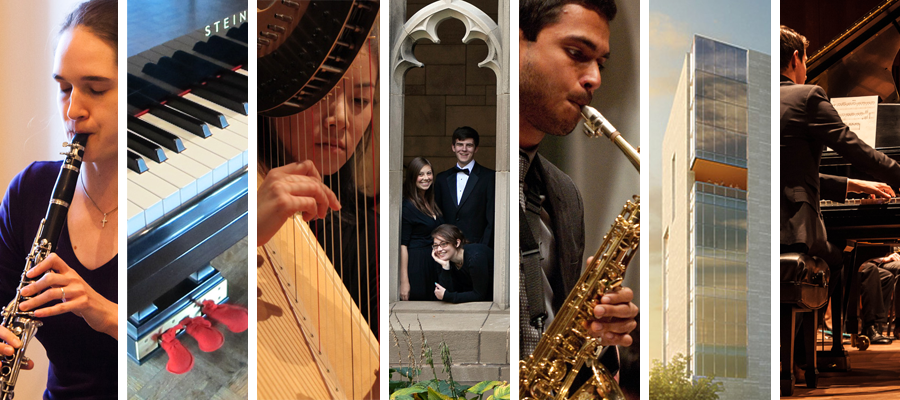 Andrew McManus, doctoral student in composition, is one of six graduate students whose work will be performed at the New Music Ensemble concert on Saturday, November 10 at 8 PM, Fulton Recital Hall.
Andrew McManus, doctoral student in composition, is one of six graduate students whose work will be performed at the New Music Ensemble concert on Saturday, November 10 at 8 PM, Fulton Recital Hall.
As a busy graduate student at the University of Chicago pursuing his Doctorate in Composition, how do you balance academic classes, staying tuned-in with the Chicago new music scene, and composing your own works?
I can say that it’s a busy schedule to keep! I do make a serious effort to stay on top of all three of these things, as difficult as it may be sometimes. At the end of the day, though, I see them as part of one larger project, in which the academic side of things informs my work as a composer, and vice versa, where my experiences as a composer inform how I approach academic work. For this reason, while I do prioritize composing and attending concerts, I do make time to focus on academics.
Will any of your latest works be featured in this year’s New Music Ensemble Concerts?
Yes – I have a work for solo viola on the fall concert and a string quartet scheduled for the winter. I’m especially grateful for the opportunity to have the string quartet performed, since I’ve worked on and revised the piece over the course of the past two and a half years!
What are your long-term and short-term goals after graduation? At this point, do you anticipate taking a well-deserved breather or do you have your sights set on a specific objective? Do you see yourself as a full-time freelance artist or do you have a combination of interests?
I’ll definitely be looking at the academic job market after I graduate. Becoming a freelance artist is extremely difficult, and very few composers are able to achieve this, so I’ve always wanted to pursue a teaching career as a way to support my creative work.
In your opinion, what is the greatest strength of the University of Chicago’s composition program?
Perhaps the greatest strength of the program is the diversity of styles among the students here, and the faculty’s support of our individuality. I can say that I’ve learned a great deal from hearing the work of other composers whose approaches differ from mine. Other schools have reputations for attracting composers with extremely similar styles (some are even dogmatic!), and I doubt that I would benefit as much from being in a more monolithic community of composers.
What are your thoughts on the necessity of recruiting skilled musicians to the Department of Music? Do you see this as a benefit to the composition program? As a composer, can you speak to importance of having works performed for a live audience?
The ultimate goal of writing music for instruments is always a performance, so having the opportunity to work with these professional musicians is definitely a necessity. I also see it as truly vital to the success and competitiveness of the program. At conservatories it’s much easier to assemble groups to perform your music than at schools without a performance program, so having these professional opportunities available to us is most certainly a benefit to the program.
Admission is free to the New Music Ensemble concert on November 10 at 8 PM. A reception will follow. More information
Interview by Julia Tobiska, Performance Program Assistant
